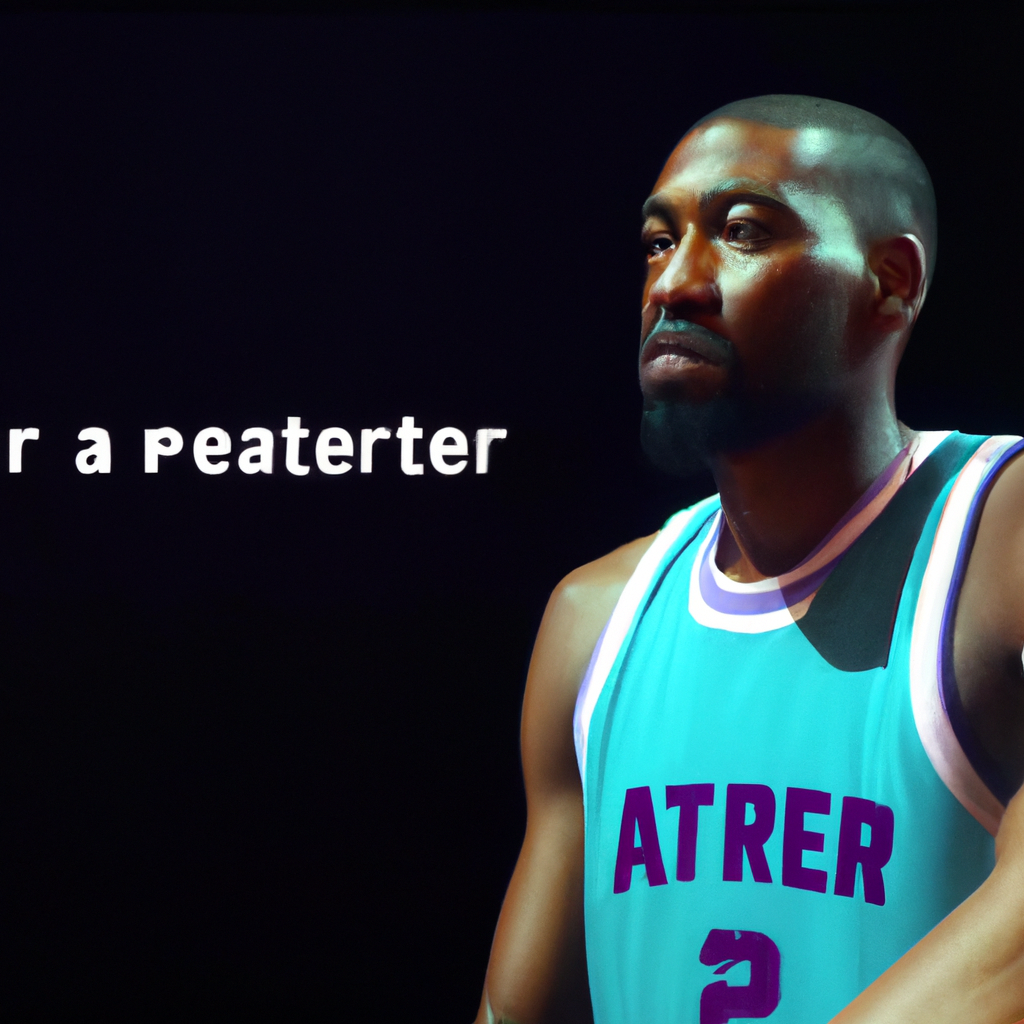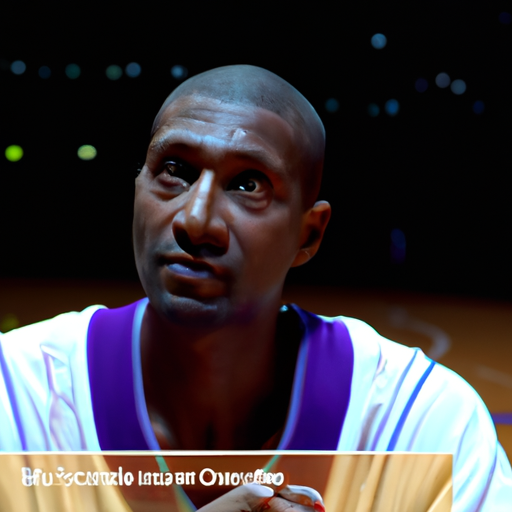Metta World Peace: “Later in my career I became way more vulnerable”

Reflecting on Metta World Peace’s Evolution as a Player
Metta World Peace, formerly known as Ron Artest, is a retired professional basketball player who played in the NBA for 17 seasons. Throughout his career, World Peace was known for his tenacity on the court, his defensive prowess, and his physical style of play. However, as he reflects on his evolution as a player, he acknowledges that he became more vulnerable later in his career.
World Peace’s journey in the NBA was not without its challenges. He faced criticism for his aggressive playing style and was involved in several on-court altercations that tarnished his reputation. Despite these setbacks, World Peace continued to work on his game and improve as a player. He credits his ability to adapt and grow as a key factor in his longevity in the league.
As World Peace matured both on and off the court, he began to embrace vulnerability as a strength rather than a weakness. He realized that showing vulnerability allowed him to connect with his teammates on a deeper level and fostered a sense of trust and camaraderie within the team. This shift in mindset not only improved his relationships with his teammates but also enhanced his performance on the court.
World Peace’s willingness to be vulnerable also extended to his interactions with fans and the media. He became more open and transparent about his struggles and insecurities, which endeared him to many and humanized him in the eyes of the public. By sharing his personal experiences and emotions, World Peace was able to connect with a wider audience and inspire others to embrace vulnerability in their own lives.
In addition to his personal growth, World Peace also experienced success on the court later in his career. He won an NBA championship with the Los Angeles Lakers in 2010 and was named the NBA Defensive Player of the Year in 2004. These accolades are a testament to his hard work, dedication, and willingness to evolve as a player.
Reflecting on his evolution, World Peace acknowledges that vulnerability played a crucial role in his development as a player and as a person. He learned that being vulnerable does not make you weak, but rather it allows you to be authentic and true to yourself. By embracing vulnerability, World Peace was able to forge deeper connections with those around him and achieve success both on and off the court.
As World Peace looks back on his career, he is grateful for the lessons he learned and the growth he experienced. He hopes to inspire others to embrace vulnerability and use it as a tool for personal and professional growth. In a league where toughness and resilience are often valued above all else, World Peace’s willingness to be vulnerable sets him apart as a player and as a role model for future generations.
In conclusion, Metta World Peace’s evolution as a player is a testament to the power of vulnerability. By embracing his vulnerabilities and showing his authentic self, World Peace was able to connect with others on a deeper level, improve his performance on the court, and achieve success in his career. His journey serves as a reminder that vulnerability is not a weakness, but a strength that can lead to personal growth and fulfillment.
The Impact of Mental Health Awareness in Metta World Peace’s Career

Metta World Peace, formerly known as Ron Artest, is a retired professional basketball player who played in the NBA for 17 seasons. Throughout his career, World Peace was known for his tenacity on the court, often being described as a fierce competitor. However, as he reflects on his time in the league, World Peace acknowledges that he struggled with mental health issues that impacted his performance and overall well-being.
In a recent interview, World Peace opened up about his mental health journey and how it influenced his approach to the game. He admitted that earlier in his career, he was not as open about his struggles with anxiety and depression. He believed that showing vulnerability was a sign of weakness and feared that it would affect his reputation as a tough player. As a result, World Peace often internalized his emotions and tried to push through his struggles on his own.
It wasn’t until later in his career that World Peace began to prioritize his mental health and seek help. He credits this shift in mindset to the growing awareness of mental health issues in the sports world. Athletes like Kevin Love and DeMar DeRozan have been vocal about their own struggles with mental health, inspiring others to speak out and seek support. World Peace realized that he didn’t have to suffer in silence and that seeking help was a sign of strength, not weakness.
As World Peace became more open about his mental health struggles, he noticed a positive impact on his performance on the court. By addressing his anxiety and depression head-on, he was able to focus more on the game and perform at a higher level. He also found that being vulnerable allowed him to connect with his teammates on a deeper level, fostering a sense of trust and camaraderie that ultimately led to success on the court.
World Peace’s journey serves as a powerful reminder of the importance of mental health awareness in the sports world. By sharing his story and advocating for mental health support, he has helped break down the stigma surrounding mental health issues and encouraged others to seek help when needed. His openness has not only benefited his own well-being but has also inspired a new generation of athletes to prioritize their mental health.
In conclusion, Metta World Peace’s evolution from a guarded player to a vulnerable advocate for mental health awareness is a testament to the positive impact of seeking help and being open about one’s struggles. By sharing his story and embracing vulnerability, World Peace has shown that mental health is just as important as physical health in the world of sports. His journey serves as a powerful example of the transformative power of self-care and the importance of breaking down the barriers to seeking help. As we continue to strive for a more inclusive and supportive sports culture, World Peace’s story will undoubtedly inspire others to prioritize their mental well-being and seek the help they need to thrive both on and off the court.
Metta World Peace’s Journey to Self-Discovery and Vulnerability
Metta World Peace, formerly known as Ron Artest, is a retired professional basketball player who has had a tumultuous career both on and off the court. Throughout his time in the NBA, he was known for his aggressive playing style and fiery personality. However, as he has gotten older, World Peace has undergone a transformation, becoming more introspective and vulnerable.
In a recent interview, World Peace reflected on his journey to self-discovery and vulnerability. He spoke about how, earlier in his career, he was focused solely on basketball and winning games. He was known for his tough exterior and aggressive demeanor, which often led to conflicts with teammates, opponents, and even fans. However, as he got older, World Peace began to realize that there was more to life than just basketball.
World Peace credits his personal growth to a combination of therapy, meditation, and self-reflection. He began to explore his emotions and confront his inner demons, which ultimately led to a greater sense of self-awareness and vulnerability. He learned to embrace his flaws and imperfections, rather than trying to hide them behind a facade of toughness.
One of the key moments in World Peace’s journey to vulnerability came during the infamous “Malice at the Palace” brawl in 2004. During a game between the Indiana Pacers and the Detroit Pistons, a fight broke out between players and fans, resulting in suspensions and fines for those involved. World Peace was at the center of the controversy, and the incident forced him to confront his own behavior and the impact it had on others.
Following the brawl, World Peace sought therapy to help him work through his emotions and better understand his actions. He realized that his aggressive behavior was often a defense mechanism, a way of protecting himself from his own insecurities and fears. Through therapy, he was able to address these underlying issues and begin to heal from past traumas.
As World Peace continued to work on himself, he also began to explore meditation as a way to quiet his mind and find inner peace. He found that meditation helped him to stay present in the moment and let go of negative thoughts and emotions. It allowed him to connect with his true self and cultivate a sense of compassion and empathy for others.
Through therapy and meditation, World Peace was able to break down the walls he had built around himself and become more vulnerable. He learned to open up to others, express his emotions, and show his true self without fear of judgment. This newfound vulnerability not only helped him to heal and grow as a person but also improved his relationships with those around him.
In the interview, World Peace spoke about how vulnerability has made him a better person and a better teammate. He emphasized the importance of being open and honest with oneself and others, and how it can lead to deeper connections and a greater sense of fulfillment. He encouraged others to embrace their vulnerability and not be afraid to show their true selves to the world.
Overall, Metta World Peace’s journey to self-discovery and vulnerability serves as a powerful reminder that it is never too late to change and grow. By confronting his inner demons and embracing his vulnerabilities, he was able to transform himself into a more compassionate and authentic individual. His story is a testament to the power of self-reflection, therapy, and meditation in achieving personal growth and emotional healing.

